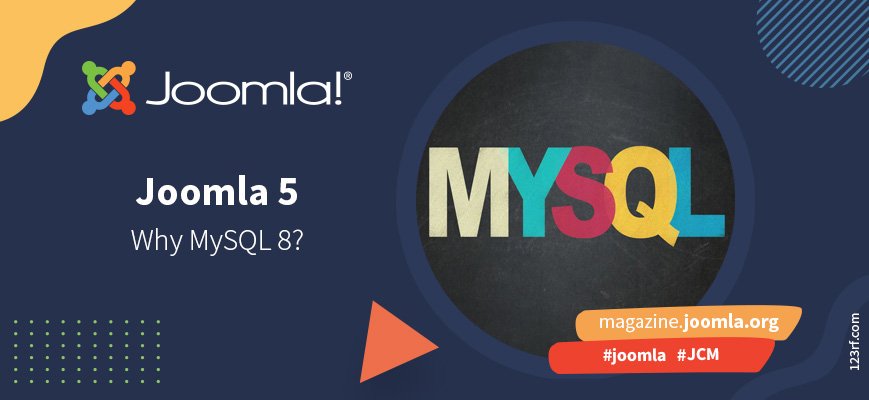Understanding Joomla 5’s technical requirements
While some users face challenges upgrading to Joomla 5 due to hosting limitations with MySQL 8, it's essential to understand the rationale behind this decision. It's not merely a preference but a strategic alignment with Joomla's core values of security and innovation. With MySQL 5.7 reaching its end-of-life and the software itself being eight years old, the transition to MySQL 8.0 is both timely and critical.
Technical advancements
Introduced in 2018, MySQL 8.0 is not just an update but a significant advancement. It brings to the table enhancements in SQL, JSON, GIS, reliability, observability, manageability, security, and performance. This version is not just about bug fixes; it represents a new era of continuous delivery and innovation from Oracle. A more detailed list can be found on the MySQL Blog.
MySQL 8.0's prowess lies in its enhanced performance, robust security policies, and optimised resource management. This makes it an indispensable tool for maintaining Joomla’s high standards of performance, stability, and security.
Addressing the challenge of outdated hosting environments
The main issues or risks associated with not updating to MySQL 8 include security vulnerabilities which could leave your website or application open to attack. And performance issues, as outlined MySQL 8 has introduced a number of performance improvements. By staying on 5.7 you are missing out on these benefits.
Why are some hosting suppliers not using MySQL 8.0?
The reluctance of some hosting providers to adopt MySQL 8.0, often due to concerns about downtime and service disruption, presents a challenge. However, the risks of not updating, particularly in terms of security vulnerabilities and performance drawbacks, are significant. For businesses and e-commerce platforms, staying current with MySQL versions is not just a recommendation; it's a necessity.
Is it safe to use MySQL 5.7?
Whether it's safe to use or not depends on your specific needs and what steps your hosting supplier is taking to secure your website or application from vulnerabilities. If it's a non-critical application such as a personal blog, you could argue that it may be acceptable to use for a while longer; however, if it's a business website or ecommerce store then you really should upgrade to a newer version of MySQL.
What should you do if your hosting supplier is still on MySQL 5.7?
If your hosting provider still operates on MySQL 5.7, initiate a dialogue about their upgrade plans and security measures. If your hosting supplier is not planning to upgrade to a newer version of MySQL, or if you are not satisfied with their response, you may want to consider switching to a different hosting provider that is using a newer version of MySQL. Most hosting suppliers offer migration services to make the process easier. Alternatively, you may want to investigate if your hosting supplier is offering another compatible database system such as MariaDB.
Challenges with MySQL 8 in local environments:
A closer look at MAMP
Presently, MAMP is limited to MySQL 5.7, creating compatibility issues with Joomla 5. Discussions on MAMP's support forums reveal anticipation for MySQL 8 integration, expected in MAMP Pro later this year. This upgrade, fervently awaited by users voicing their concerns online, raises hopes for its subsequent inclusion in MAMP's free version.
In the interim, workarounds have emerged. For instance, integrating MySQL 8 with MAMP via Docker containers, though not ideal, proves functional. macOS users can explore DBngin, allowing database linkage without leaving MAMP, or Herd for a streamlined solution.
Considering alternatives: A strategy for adaptation
As we navigate this transitional phase, XAMPP emerges as a practical interim solution, offering MySQL 8 support. This alternative might serve well until the arrival of MAMP Pro 7.
Conclusion
Joomla's decision to integrate MySQL 8 as a technical requirement is a forward-thinking move that underscores its commitment to providing a secure, efficient, and state-of-the-art CMS experience. This step ensures long-term support, compatibility with modern technologies, and an enhanced user experience characterised by improved security and performance. However, it's also important to note that you don’t need to upgrade to Joomla 5 straight away, you can remain on 4.4 until your provider supports the necessary database system.

ABOUT THE AUTHOR
As a digital marketing specialist for Maafor, Lydia Akpobor provides digital marketing and video production services for the agency and its client base. She has a background in video production and digital media.





